Benefits Of Neem Oil For Skin, How To Use It, And Risk Factors
Say 'goodbye' to all your skincare woes with this therapeutic natural oil.
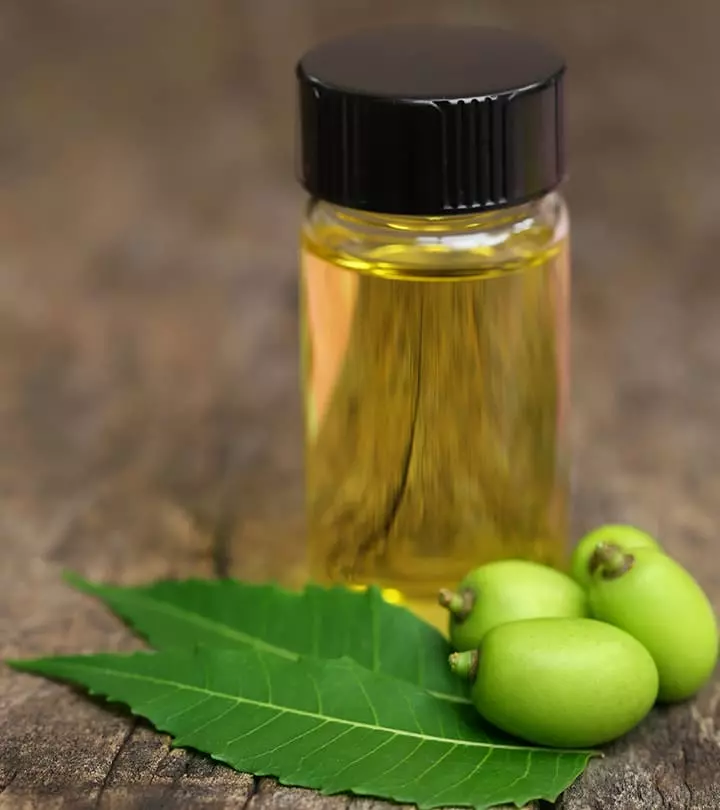
Image: Shutterstock
Neem oil is a popular ingredient in several products, such as anti-aging creams and anti-dandruff shampoos. It has been used as a traditional medicine for various health concerns and health benefits for ages.. Since it offers many benefits, you can use neem oil for skin, body, and hair issues. It is also believed to help manage acne issues.
This bitter-tasting, brownish natural oil may improve your skin texture and fight against bacteria. But how does neem oil actually work? Is it safe to use on the skin? How do you use it?
This article will answer all your queries related to neem oil, its benefits, how to use it, safety, properties, and more. Keep reading to know everything about neem oil.
 Know Your Ingredient: Neem Oil
Know Your Ingredient: Neem OilWhat Is It?
Oil extracted from the fruit and seed of the Neem tree.
What Are Its Benefits?
It may treat acne, reduce dryness, and treat fungal infections and other skin conditions like eczema.
Who Can Use It?
Anyone can use it except for people with sensitive and acne-prone skin.
How Often?
You can apply a few drops of neem oil with another carrier oil daily.
Caution
Avoid using neem oil if you experience any rashes or redness on your skin.
In This Article
Benefits Of Neem Oil For Skin
There are multiple well-known benefits of neem that you can avail through its various forms, be it powder, paste, tea, oil, or as an ingredient in a commercial product. Here we are going to discuss how neem as an oil can be beneficial in your everyday life. Whether you need a natural remedy for medicinal baths or treating dandruff, neem oil has been used in a wide range of natural remedies for skin and hair. Learn about these benefits in more details below.
1. Treats Acne
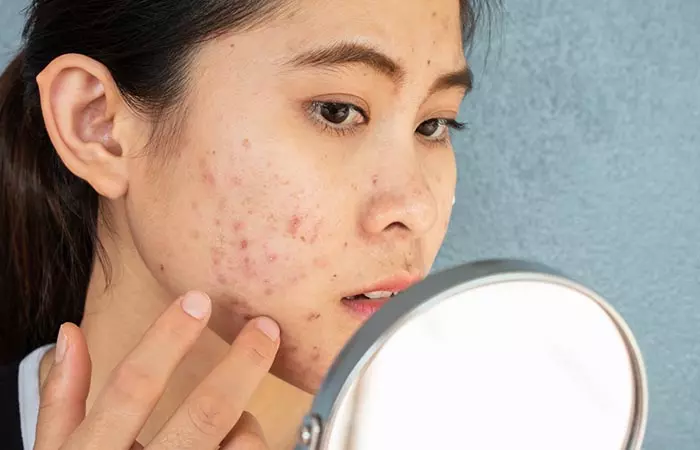
Neem seed oil has antibacterial and anti-inflammatory properties, making it a natural remedy for acne (1). A study showed that using neem oil for acne treatment can actually treat and prevent breakouts in the long run (2). Just apply neem oil as a spot treatment or all over your face or consider using an overnight neem face pack to treat acne.
Ekta, a beauty and fashion blogger, shares how she uses neem oil to treat acne and acne scars: “In undiluted form, I use it directly on my acne or acne scars by taking a few drops on cotton and then dabbing it….I do this in my PM routine after cleansing and moisturizing. Trust me, it helps a lot in drying the acne, and you will also notice slight lightening of the scars (i).”
2. Reduces Skin Dryness

Well-hydrated skin is less prone to damage. Neem oil contains essential fatty acids like linoleic acid, palmitic acid, oleic acid, and stearic acid (3). These acids can strengthen the skin’s barrier and keep it moisturized.
3. Fights Skin Damage
Neem oil also has antioxidant properties that protect the skin from environmental damage. A study found that neem oil comprises nimbolide and azadirachtin (4). These components combat the skin damage caused by free radicals and can improve the overall skin texture.
4. Eliminates Fungal Infections
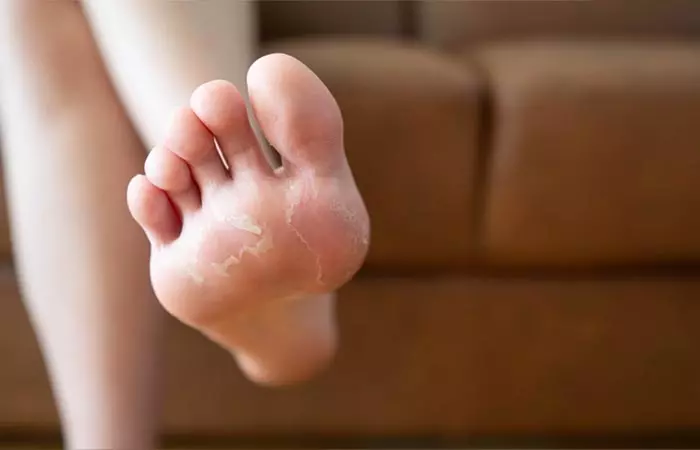
You can also use neem oil for treating skin fungi since it contains fungicidal compounds called gedunin and nimbidol (1). This oil is used in Ayurveda to treat Ayurvedic fungal skin conditions such as athlete’s foot and ringworm, due to its antifungal properties (5).
 Trivia
Trivia5. Treats Eczema And Other Skin Conditions
Nimbidin, one of the primary components of the neem plant which can help to manage and treat skin infections. Thus, topical application of neem for eczema can soothe inflammation and heal microtears. It’s also great for other skin conditions like dermatitis and furunculosis (6). Some sources claim that it can also treat psoriasis and provide relief from boils and ulcers (5). That said, more research is needed to back these claims.
6. Heals Wounds
Neem oil has been traditionally used in some cultures for its potential medicinal properties, including wound healing. It contains various compounds, such as triglycerides, nimbidin, nimbin, and other bioactive components with antimicrobial, anti-inflammatory, and antioxidant properties. A study conducted to understand the efficacy of the topical application of neem oil showed that it was effective against chronic non-healing wounds (7).
7. Fights The Signs Of Aging
Neem leaves possess anti-aging properties due to being rich in antioxidants, fatty acids, and vitamins. These components help combat free radicals, which can cause premature aging of the skin (8). Neem oil, extracted from the leaves, moisturizes and nourishes the skin, promoting elasticity and reducing the appearance of fine lines and wrinkles. As mentioned earlier, it also has anti-inflammatory qualities, which soothe irritated skin. Thus, regular use of neem oil in skin care routines may contribute to a more youthful skin tone by maintaining skin health and preventing the signs of aging.
From the various neem oil benefits and applications for the skin, it is clear that adding this Ayurvedic oil to your skin care regimen is a good idea. However, neem oil needs to be used safely and in the correct manner. Otherwise, you may end up doing more harm to your skin than good. Read on to learn how to apply neem oil to your skin.
Key Takeaways
- Neem oil is a bitter-tasting natural oil with many therapeutic uses. It has anti-inflammatory and antibacterial properties that help benefit skin health.
- This brownish oil can help treat acne, reduce skin dryness, and fights skin damage.
- You can apply this oil to your skin after diluting it with any carrier oil.
How To Use Neem Oil On Your Skin

Neem oil must be applied only after you have carried out a small patch test on your arm to check how your skin reacts to it. Apply a small amount on the inside of your forearm. If you do not experience any adverse reaction like redness or irritation in 24 hours, it is considered safe for skin application.
It must be noted that neem oil in itself is a very potent essential oil. It is best used by mixing it in equal parts with a carrier oil like coconut, jojoba, or olive oil.
Adding it to a carrier oil will also give you the added advantage of a slightly subdued neem oil smell that many people find repulsive. You can also add a few drops of other pleasant-smelling oils like lavender, rose, jasmine, etc., for a relaxing and soothing effect.
If you have oily skin that gets irritated by skin oils, mix a few drops of neem oil with natural aloe vera gel for a less oily effect.
Once you have mixed it with a carrier oil or gel, follow these steps to use neem oil on your face and body:
- Soak a cotton ball or pad in a few drops of diluted neem oil.
- Apply the oil to the desired area in a light dabbing motion. Do not rub it rigorously.
- Allow it to get absorbed by your skin for about 20 minutes.
- Wash the neem oil off with warm water.
- Do this every day for the best results.
 Quick Tip
Quick TipWhile there are many benefits of neem seed oil for the skin and hair, you must also be aware of the risks associated with it. Keep reading to find out more.
Risks Of Neem Oil For Skin

Here are the risks associated with neem oil that you must keep in mind before application:
- Neem oil is toxic and must never be consumed. Oral consumption of excessive neem oil can lead to toxicity and poisoning with symptoms like vomiting, seizures, excessive acid in the body, and brain malfunction (9).
- Neem oil is a very potent oil that can cause unwanted reactions in people with sensitive skin, including itchiness, redness, rash, or hives. If you notice any of these signs, stop using it immediately and consult a doctor.
- Neem oil is not suitable for children due to its high potency. It can also cause severe reactions in infants like toxic encephalopathy (10). Thus, it should not be used on a child unless prescribed by a doctor.
- It is also uncertain if neem oil is safe for pregnant and breastfeeding women since not many studies have been conducted in this regard. Always consult your doctor before applying it to your face or body.
Since it can cause some dangerous side effects, it is always recommended to talk to your healthcare provider before using it to avoid any health risks.
As the popularity of neem oil has grown, many skin care enthusiasts are interested to learn whether it can be used at night. Continue reading to find out if this natural oil deserves a spot in your nighttime routine.
Can You Apply Neem Oil On Your Face At Night?
Yes, you can use neem oil on your face at night. Here’s how:
- Make a diluted mixture of cold-pressed neem oil along with a carrier oil like sesame oil, olive oil, or coconut oil.
- Apply it gently on your clean face using a cotton ball.
- Massage your face gently in an upward motion.
- Leave it on for about 20-30 minutes.
- Rinse it off with water or use a gentle cleanser.
Be careful not to leave this oil overnight on your face. Use pure neem oil for the face regularly for clearer skin.
There are numerous misconceptions surrounding neem oil. It’s time to debunk some of them in the next section.
Common Misconceptions About Using Neem Oil For Skin
A common misconception about neem oil is that it is only used for acne. However, as mentioned earlier in the article, it has numerous benefits. Apart from this, here are some other neem oil myths you should know about:
- Myth: It Is A Miracle Cure For All Skin Issues
Truth:
While neem oil is beneficial for the skin, it is not an instant cure for all skin concerns. You have to use it consistently to notice visible results. It is also important to note that it cannot replace medical treatments. Therefore, it should be used as a complementary skincare ingredient rather than a substitute for professional care, especially for serious skin conditions. Always consult a dermatologist before relying solely on neem oil for conditions like eczema, psoriasis, or severe acne.
- Myth: All Neem Oils Are the Same.
Truth:
Like all other oils available out there, not all neem oils are created equal. Most commercial neem oils often contain filler and added chemicals that not only reduce their effectiveness but may also be harmful. Therefore, you should always choose pure, cold-pressed neem oil for skincare.
Infographic: 5 Reasons For Using Neem Oil For Your Skin
Neem oil has been used in traditional medicine for years to treat various diseases and skin issues. It can be used with a carrier oil or added to your daily moisturizer to treat dry and damaged skin. Scroll down and check out the infographic to learn how this bitter-tasting oil improves your skin health.

Illustration: StyleCraze Design Team
Neem oil can help you get rid of acne and improve your skin. For clearer skin, apply pure neem oil to your face on a regular basis. It is best to combine it with a carrier oil like coconut, jojoba, or olive oil in equal amounts. Neem oil is easy to use and may be purchased at your local drugstore. However, as previously indicated, it may cause an adverse reaction in those with sensitive skin. So, if you are going to use this Ayurvedic skin care product, be careful. Nevertheless, you may reap the benefits of neem oil and obtain beautiful skin without using harsh chemicals if you exercise caution.
Frequently Asked Questions
Does neem oil help dark circles?
Yes, neem oil may possess anti-tanning properties that may help reduce pigmentation around the eyes (11). However, be cautious with its use as potent products may also cause leukoderma (white depigmented skin caused due to the absence of melanin producing cells) in certain individuals, (12).
How long does neem oil take to work?
It may take between a few days to a few weeks before you see any results. Conduct a patch test to check for adverse effects before using it.
Is Neem also used as an insect repellent?
Many traditional households use neem oil to repel mosquitos and other insects (13). However, more scientific study is required to validate the claim.
Is neem oil safe for humans to eat?
No, neem oil is not safe for human consumption. It may be toxic and can harm vital organs like kidneys and liver. It is meant for topical use only.
Illustration: Benefits Of Neem Oil For Skin How To Use It And Risk Factors

Image: Stable Diffusion/StyleCraze Design Team
Discover 10 amazing beauty uses of neem oil! From treating acne to promoting hair growth and reducing frizz, neem oil can help you look and feel your best. Watch the video below and learn how to use it for dark spots, blackheads, and more!
Personal Experience: Source
StyleCraze's articles are interwoven with authentic personal narratives that provide depth and resonance to our content. Below are the sources of the personal accounts referenced in this article.
i. Cold Pressed Neem Oilhttps://poutandposeblog.wordpress.com/2020/08/23/cold-pressed-neem-oil-deyga-organics/
References
Articles on StyleCraze are backed by verified information from peer-reviewed and academic research papers, reputed organizations, research institutions, and medical associations to ensure accuracy and relevance. Read our editorial policy to learn more.
- Topical Herbal Therapies an Alternative and Complementary Choice to Combat Acne
https://www.researchgate.net/profile/Prof-Swarnlata-Saraf/publication/270950972_Topical_Herbal_Therapies_an_Alternative_and_Complementary_Choice_to_Combat_Acne/links/5988854aaca27266ada4a0f2/Topical-Herbal-Therapies-an-Alternative-and-Complementary-Choice-to-Combat-Acne.pdf - Formulation and characterization of solid lipid nanoparticles loaded Neem oil for topical treatment of acne
https://www.sciencedirect.com/science/article/pii/S2221618913601444?via%3Dihub - Variations in fatty acid composition of neem seeds collected from the Rajasthan state of India
https://pubmed.ncbi.nlm.nih.gov/11171243/ - Therapeutics Role of Azadirachta indica (Neem) and Their Active Constituents in Diseases Prevention and Treatment
https://www.hindawi.com/journals/ecam/2016/7382506/ - Herbal Remedies of Azadirachta indica and its Medicinal Application
https://www.jocpr.com/articles/herbal-remedies-of-azadirachta-indica-and-its-medicinal-application.pdf - Medicinal and Cosmetic Potential of Neem (Azadiracta Indica) Seed Oil: A Review
https://www.rroij.com/open-access/medicinal-and-cosmetic-potential-of-neem-azadiracta-indica-seed-oil-a-review.php?aid=34057 - Effect of Neem oil and Haridra on non-healing wounds
https://www.ncbi.nlm.nih.gov/pmc/articles/PMC4492024/ - Topical application of neem leaves prevents wrinkles formation in UVB-exposed hairless mice
https://www.sciencedirect.com/science/article/abs/pii/S1011134416303323 - Neem oil poisoning: Case report of an adult with toxic encephalopathy
https://pubmed.ncbi.nlm.nih.gov/24339648/ - Neem Oil Poisoning as a Cause of Toxic Encephalopathy in an Infant
https://link.springer.com/article/10.1007/s12098-013-1327-x - Azadirachta indica (Neem) as a Potential Natural Active for Dermocosmetic and Topical Products: A Narrative Review
https://www.researchgate.net/publication/361046892_Azadirachta_indica_Neem_as_a_Potential_Natural_Active_for_Dermocosmetic_and_Topical_Products_A_Narrative_Review - A case of leukoderma probably caused by a soap containing neem oil
https://onlinelibrary.wiley.com/doi/full/10.1002/cia2.12192 - Field studies on the mosquito repellent action of neem oil
https://pubmed.ncbi.nlm.nih.gov/8525409/
Read full bio of Dr. Preethi Nagaraj
Read full bio of Arshiya Syeda
Read full bio of Ramona Sinha
Read full bio of Monomita Chakraborty







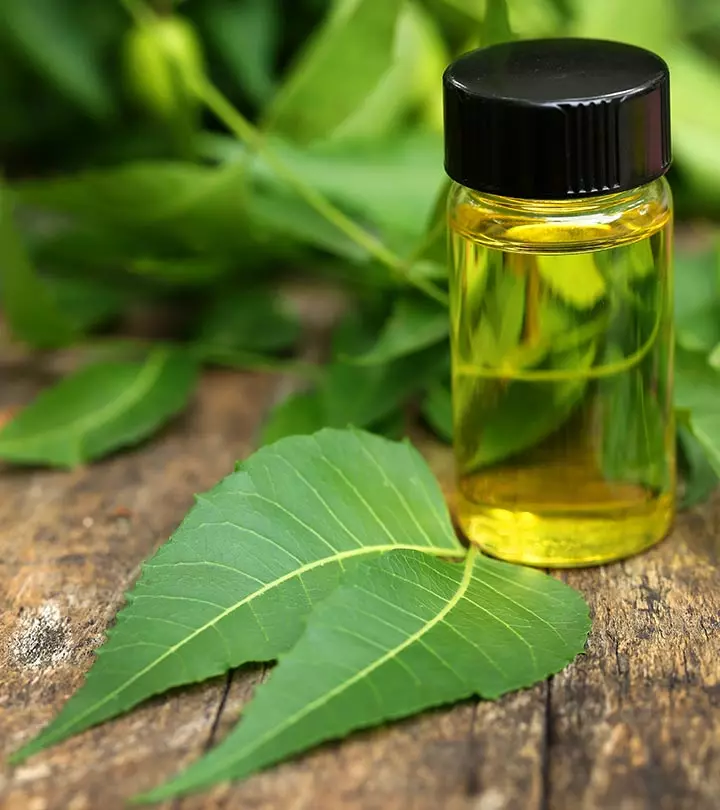
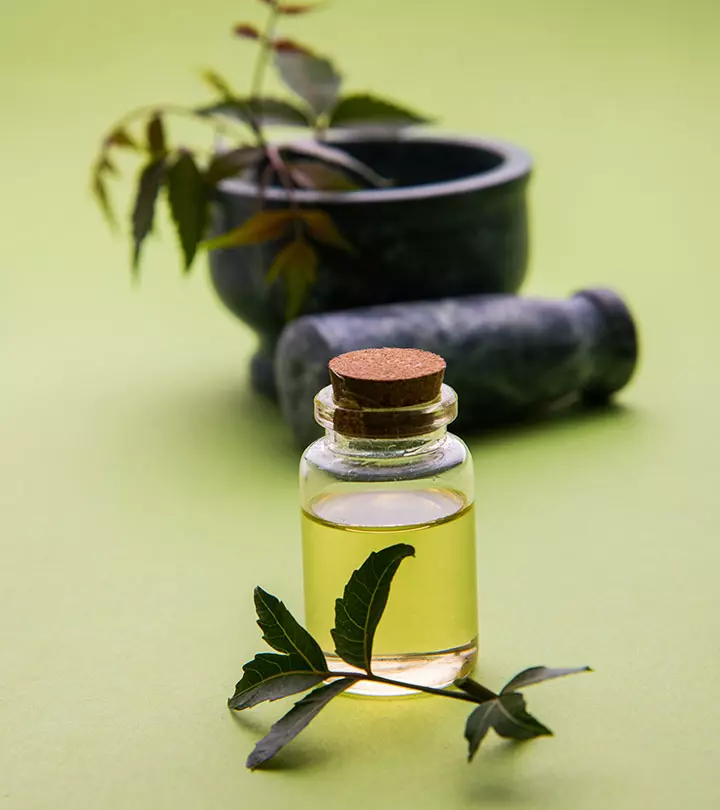
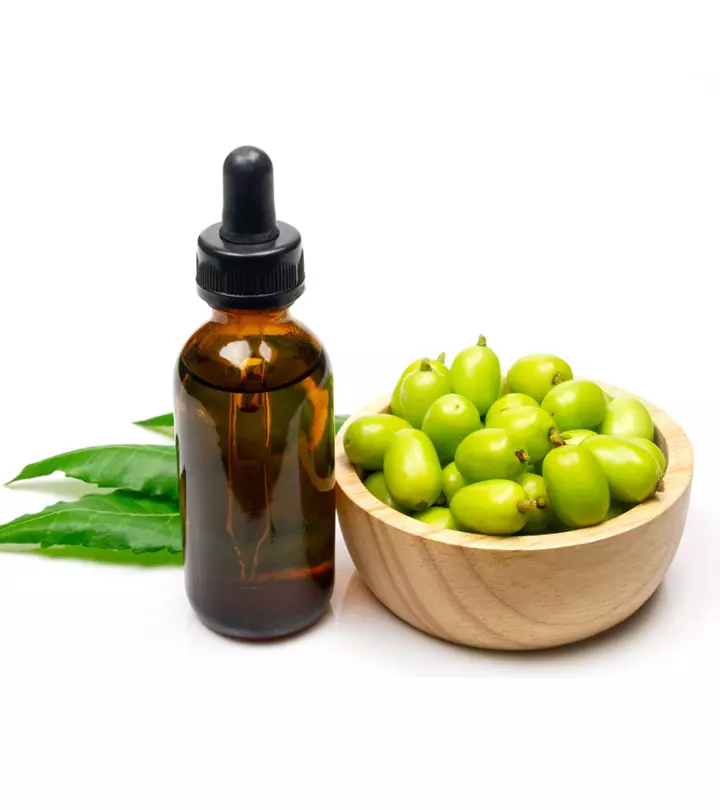
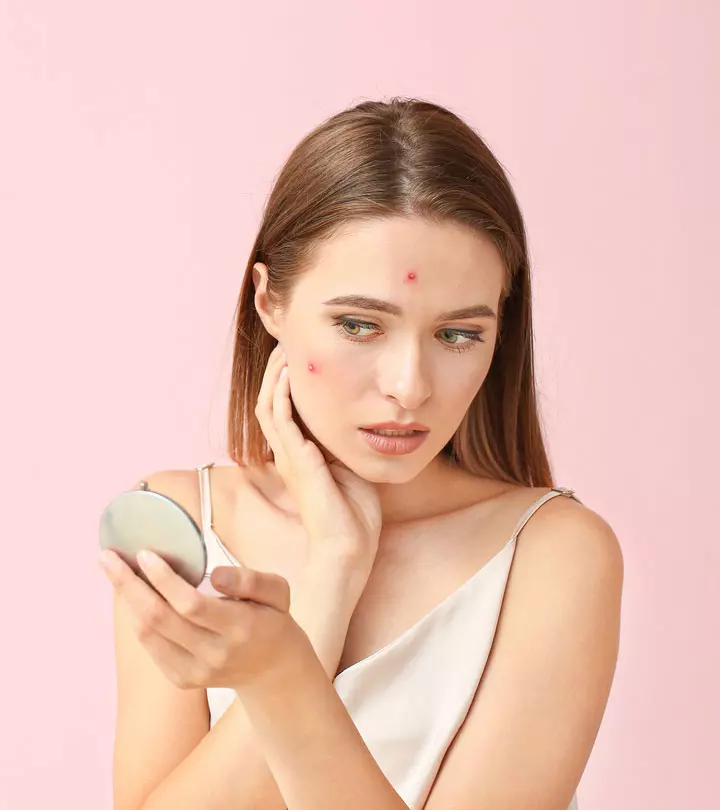


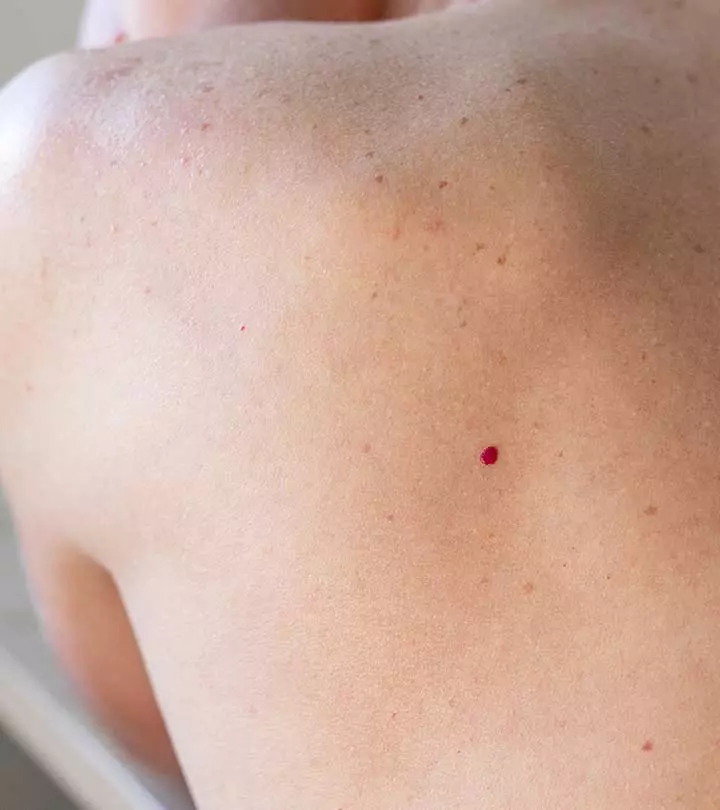



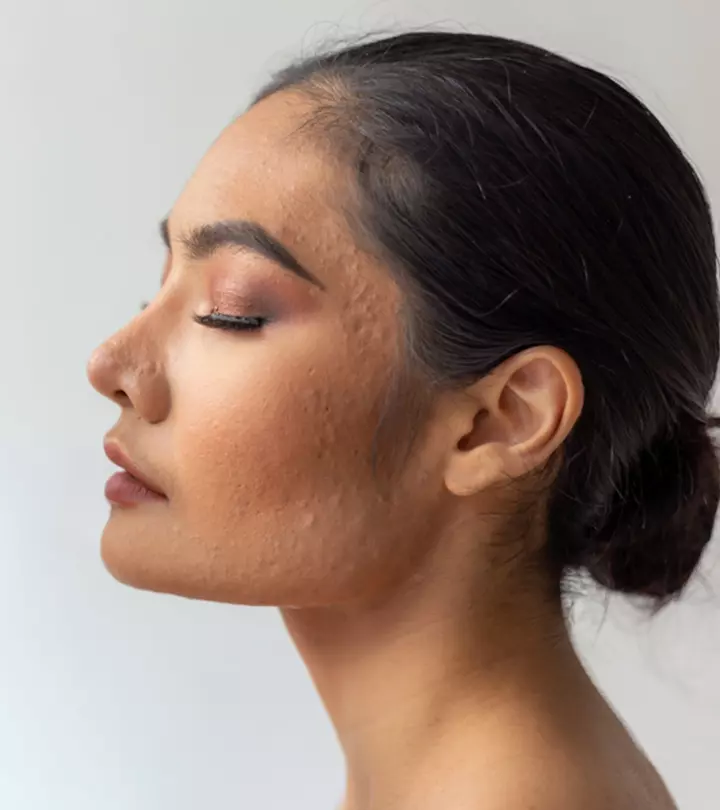

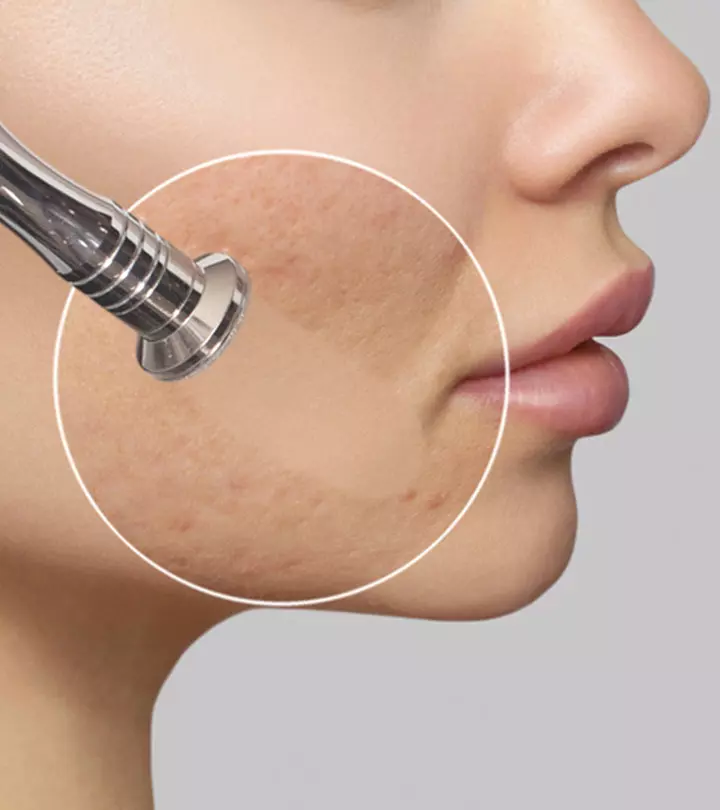
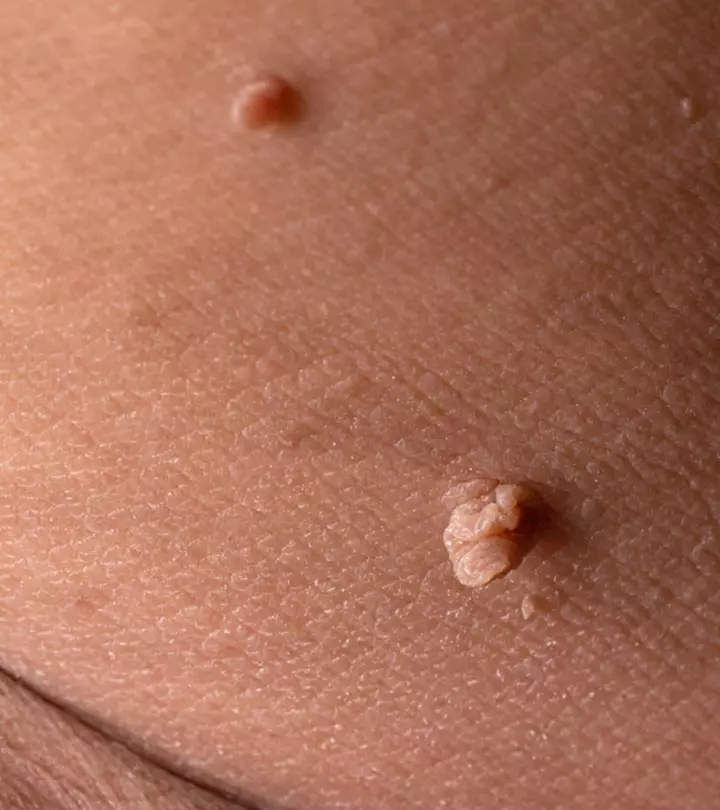
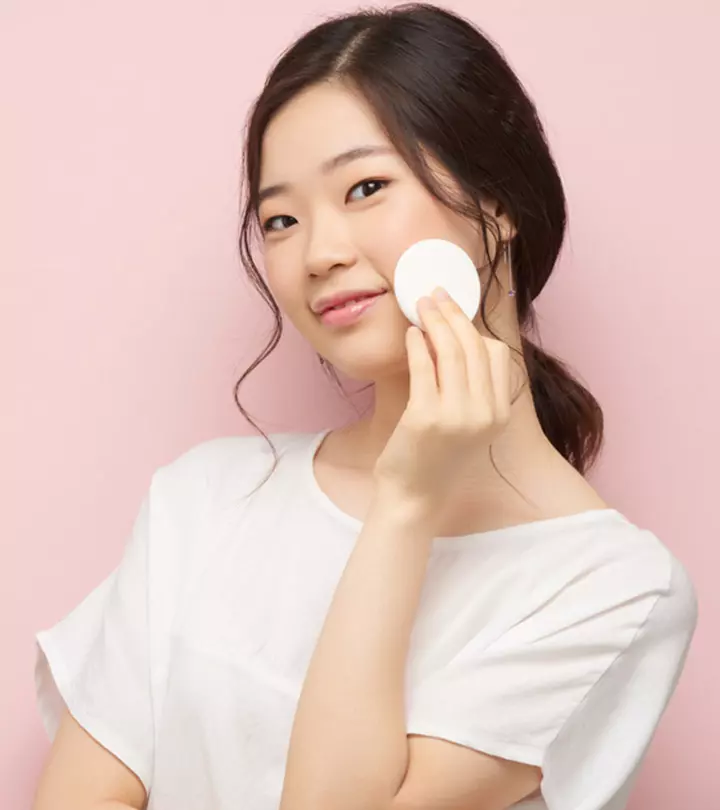


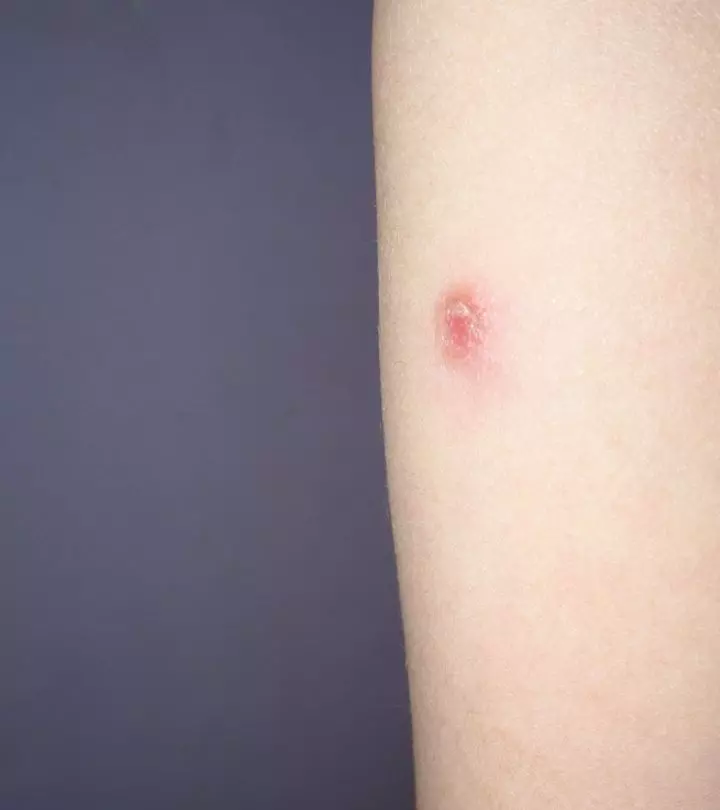


Community Experiences
Join the conversation and become a part of our empowering community! Share your stories, experiences, and insights to connect with other beauty, lifestyle, and health enthusiasts.